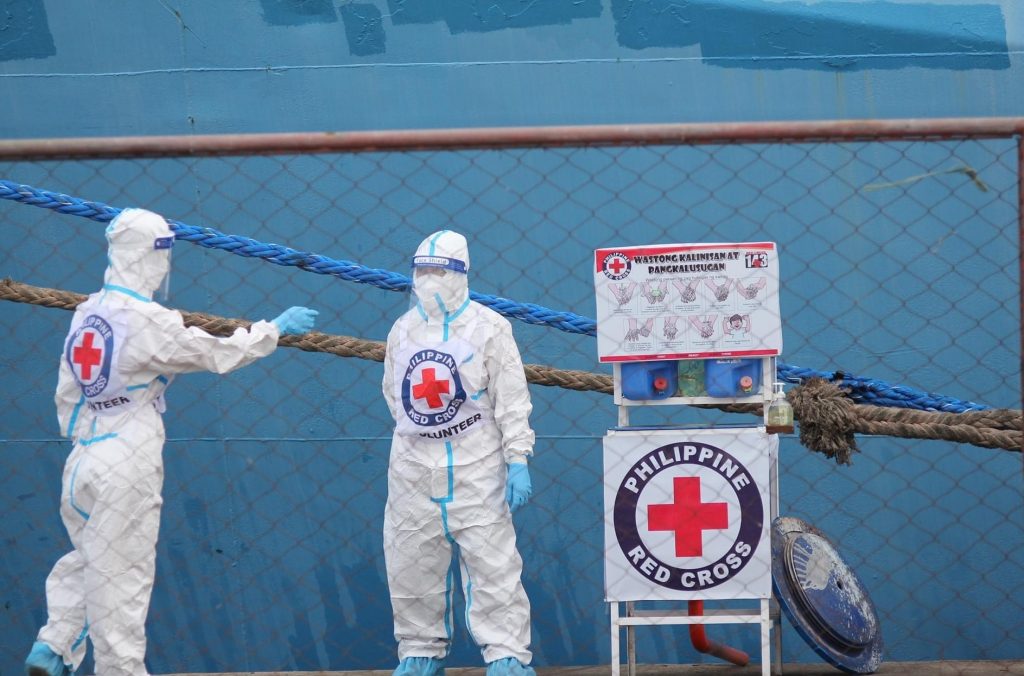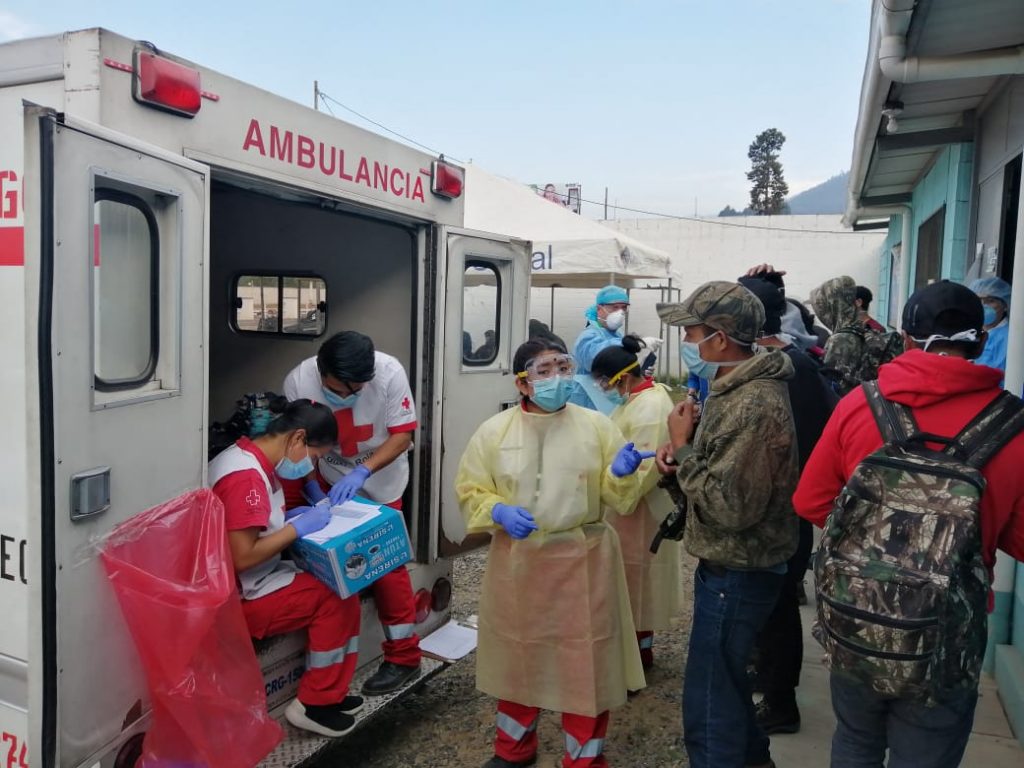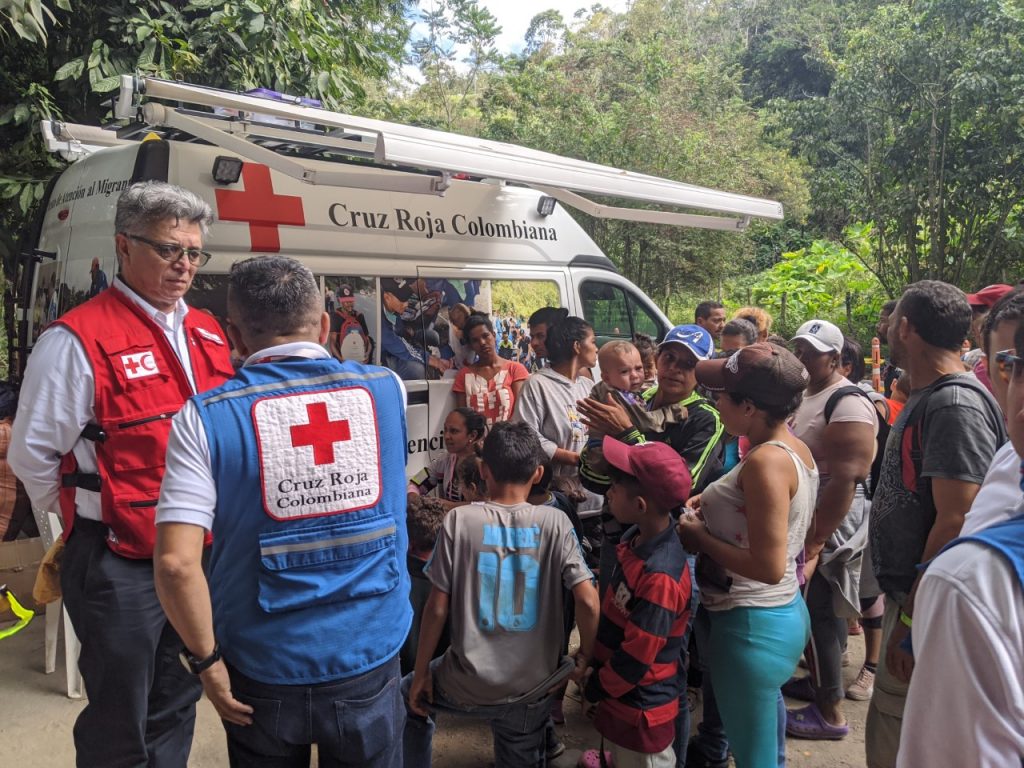Closed Borders: Migrant Realities One Year into the COVID-19 Pandemic
Arsht-Rock and IFRC are working together to expand the reach and services of Humanitarian Service Points, which offer much-needed resources and information on COVID-19 prevention and hygiene kits to migrants and host communities.
By Rebecca Scheurer, Owen Gow, Kurtis Weatherford Wed, Mar 18, 2020

One year ago, the World Health Organization (WHO) characterized COVID-19 as a global pandemic. An unfathomable loss of life – nearly 2.6 million deaths to date – ensued, alongside significant disruptions to normal patterns of human movement. Within three months, countries to varying extents closed their borders, halted visa issuances, and established other types of restrictions on mobility around the world. These restrictions also presented an additional barrier to people seeking refuge after fleeing from natural disasters and conflict. Cross-border displacement is not a new phenomenon, however, and there are established systems that have supported displaced people during the pandemic. One exemplary program is the Humanitarian Service Points run by the International Federation for the Red Cross (IFRC) and its affiliated National Red Cross and Red Crescent Societies, currently supported by the Adrienne Arsht-Rockefeller Foundation Resilience Center (Arsht-Rock). These fixed and mobile sites are located along migrant routes where migrants – regardless of status – can receive essential aid and information. Uniquely accessible, visible and indiscriminate, HSPs are well-positioned to raise awareness among migrants and host communities about COVID-19, and to provide migrants with practical information on how to access healthcare and treatment.

Arsht-Rock and IFRC are working together to expand the reach and services of Humanitarian Service Points, which offer much-needed information on COVID-19 prevention and hygiene kits to migrants and host communities along with water, psychosocial support, and other services at this critical time. Even as some countries vaccinate the majority of their populations and begin a return to normalcy, many countries and displaced populations will likely continue to deal with this public health crisis for the foreseeable future. And when this crisis is finally behind us, there will still be future health and climate change-related disasters that both displace people and disrupt access to basic needs. For these reasons, this partnership stands to bolster the reach and impact of Humanitarian Service Points within and beyond the current participating 23 countries by expanding access to emergency care and creating opportunities for hopeful, healthy and prosperous futures among the most destitute of migrants. In the upcoming year, Arsht-Rock aims to further expand the reach of these services points to Ethiopia and Greece, where National Societies are already working to meet the needs of those most impacted by the pandemic.

While Arsht-Rock has been supporting the National Societies’ frontline engagement with migrants at the Humanitarian Service Points, IFRC has also gathered critical data that underscore why migrants need access to basic services well beyond the current reach of the HSP initiative. In its recently published report, Locked down and left out? Why access to basic services for migrants is critical to our COVID-19 response and recovery, the Red Cross Red Crescent Global Migration Lab outlines migrants’ lack of access to vital health services, accurate information, and support to meet basic living needs.
The report highlights how all people on the move face the enormous challenge of protecting themselves and their families during the pandemic within migration systems that are not yet resilient to the shocks and stresses of the future. In Ethiopia, where migrants returned from Sudan and the Middle East, 46.7% of those surveyed said that they experienced mental distress due to the pandemic (including anxiety, depression or other psychological pressures). A tragic number of migrants, however, have been cut off from the resources they need. For instance, in Sudan, the report cites that 62% of migrants surveyed did not have access to COVID-19 testing. In Colombia, though 88% of survey respondents said that their migration status was not a key barrier to accessing services during the pandemic, undocumented indigenous migrants in particular struggled to obtain special stay permits.
The report highlights how all people on the move face the enormous challenge of protecting themselves and their families during the pandemic within migration systems that are not yet resilient to the shocks and stresses of the future.
As the pandemic continues and human movement resumes, Arsht-Rock, IFRC and its network of National Red Cross and Red Crescent Societies will continue to walk alongside migrants and provide aid, compassion, knowledge, and support to ensure safer and more prosperous journeys. While resilience cannot be developed overnight or through one approach – particularly among migrants who continue to move under challenging circumstances – in a general sense, what’s needed is the same as ever: a sense of common humanity, investment in services that build resilience among those most at risk to catastrophic events, and the commitment to leave no one behind as the world recovers from the pandemic.
